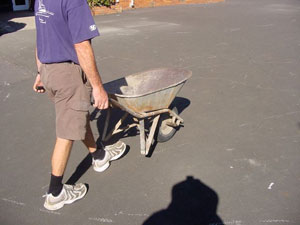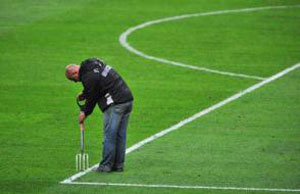Caretaker
Tasks & duties

Caretakers may do some or all of the following:
-
clean, maintain and prepare buildings and their grounds for use
-
look after boilers or furnaces used for central heating
-
replace light bulbs and fuses
-
collect rubbish, recycling and lost property
-
deal with any damage to property caused by vandals such as graffiti
-
make minor repairs to buildings and furnishings such as fixing window catches
-
report major problems such as electrical faults
-
assist the public with directions, lost property or emergencies
-
lock doors and check security
-
supervise contractors
Specialisations
In larger buildings, such as colleges or universities, work may be divided between caretakers. Therefore some may be responsible solely for grounds and gardens maintenance, building maintenance or furniture repairs.
Skills & knowledge

Caretakers need to have:
-
some mechanical aptitude
-
knowledge of the rules and regulations of the building or grounds they are looking after
-
a range of practical skills, including basic repair methods
-
knowledge of the materials used for different repairs
-
knowledge of fire safety regulations and emergency procedures
-
understanding of alarms and security systems
-
skill using and caring for their equipment
-
basic first aid skills
-
organisational and problem-solving skills
-
record keeping and basic report writing skills
Caretakers may also need to know about swimming pool maintenance. Those involved in larger facilities management need to have some administrative and basic computer skills.
Entry requirements
There are no specific requirements to become a caretaker, but trade skills such as workshop technology may be useful.
Training on the job
Skills are gained on the job. Fire-fighting and first aid training are done on the job if not completed before employment, and caretakers can complete a National Certificate in Cleaning and Caretaking through the Building Service Contractors ITO. Training in turf management is also available through the NZ Sports Turf Industry Training Organisation.
Useful experience
Useful experience for caretakers includes:
-
building work
-
work involving physical labour
-
work as a caretaker's assistant
-
appliance repair work
-
serving in the Police or armed forces
-
work that involves helping people
-
cleaning or maintenance work
-
experience with children or teenagers (if working in schools)
Related courses
Carpentry and Joinery
Cleaning
For more information, please refer to Career Services.
Document Actions
